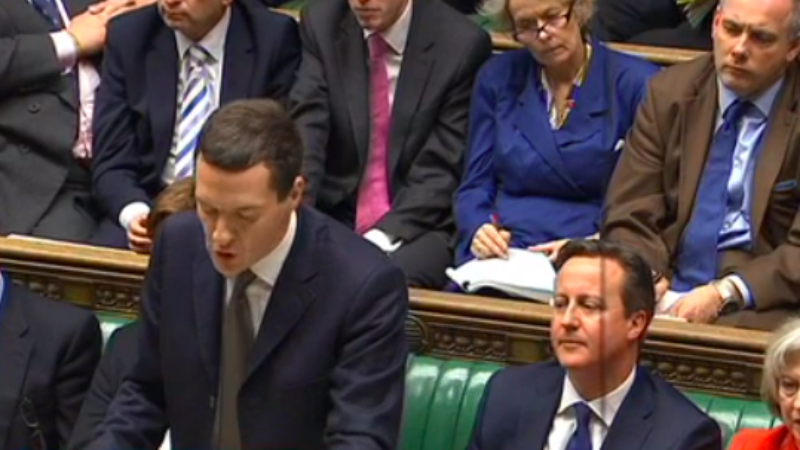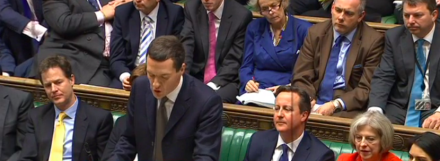

George Osborne may unwittingly have gifted Labour a detonator with which it can blow up the Tories’ 2020 election strategy.
We all remember the Chancellor’s key dividing line at the last election; while Labour was the party of welfare, the Tories were placing themselves full square behind that army of strivers who get out of bed each morning and traipse to jobs that pay them poverty wages. The Tories, so went the script, were now the only party capable of protecting Britain’s strivers.
Yet it took the Chancellor just two months to go back on his word. By announcing in his July Budget that 3.2 million low paid workers would see their tax credits cut next year, Osborne stumbled into an all-out blitzkrieg attack on the very strivers he promised would be placed front and centre of the Tory programme for this Parliament.
The new National Living Wage, higher income tax threshold and extended support towards childcare costs are all immensely welcome. But this package alone will not cover the shortfall in the poorest workers’ budgets that is being opened up by the cuts to tax credits.
The Prime Minister and the Chancellor, time and again, have said ‘8 out of 10 working families’ will be better off by 2017-18 once these other changes come into effect. But this group extends across the whole working population, and will therefore include both the Prime Minister and the Chancellor as well as the entire Cabinet. What they have yet to own up to is the fact that the 2 out of 10 working families who stand to lose out overall are those 3.2 million strivers – the lowest paid workers – who claim tax credits to top up their wages to a more acceptable minimum.
While Labour will table a motion in the House of Commons later today which seeks to put the brakes on Osborne’s cuts to tax credits, we know deep down that the motion will be voted down by Tory MPs. Tory backbenchers simply won’t stomach a Labour motion that defies their Chancellor.
But that’s not to say we should accept defeat. Those 3.2 million strivers whose tax credits will be cut in April won’t forgive us if we roll over and allow Osborne to clobber them.
That’s why, elsewhere in the Commons, I will be making a pitch for a further debate and vote on this score. My motion isn’t backed only by Labour MPs. It has been given the thumbs up by backbenchers from the Tory Party, Labour, Liberal Democrats, UKIP, DUP and Plaid Cymru.
This crucial cross-party backing will give us a better chance of winning concessions from Osborne that could protect the poorest workers and their families. Remember, we’ve been here before.
When I helped organise a backbench revolt in 2008 against Gordon Brown’s daft decision to scrap the 10p rate of tax – another all-out assault on low paid workers – Gordon bizarrely decided the best way to compensate the poor was to give tax cuts to the whole population.
Some MPs are suggesting that Osborne might follow a similar tax-cutting strategy. But he mustn’t. Such a strategy again would compensate everybody – including the whole Cabinet – for a cut being made to the poorest workers’ incomes.
I have proposed to the Chancellor that he should instead protect the poorest workers at nil cost. He should introduce a second earnings threshold that would mitigate the damage for those earning less than £13,100. This new threshold would have to be paid for, though, by reducing the current £6,410 threshold to around £4,750 and increasing the rate at which tax credits are clawed back from the 1.5 million tax credit claimants earning above £13,100. If the Government is to pledge any new money, therefore, it should be channelled towards protecting those earning slightly above £13,100 who, by anybody’s standards, aren’t exactly coining it in.
While this still would result overall in a less generous system than the one we have today, it remains an emergency proposal and one that would provide some shelter to the poorest workers whose incomes will be cut next April.
Frank Field MP is a former welfare minister and is chair of the Work and Pensions Select Committee




More from LabourList
Government announce SEND reform in schools white paper
SPONSORED: ‘Industrial hemp and the challenge of turning Labour’s priorities into practice’
‘A day is a long time in politics, so we need ‘action this day’’